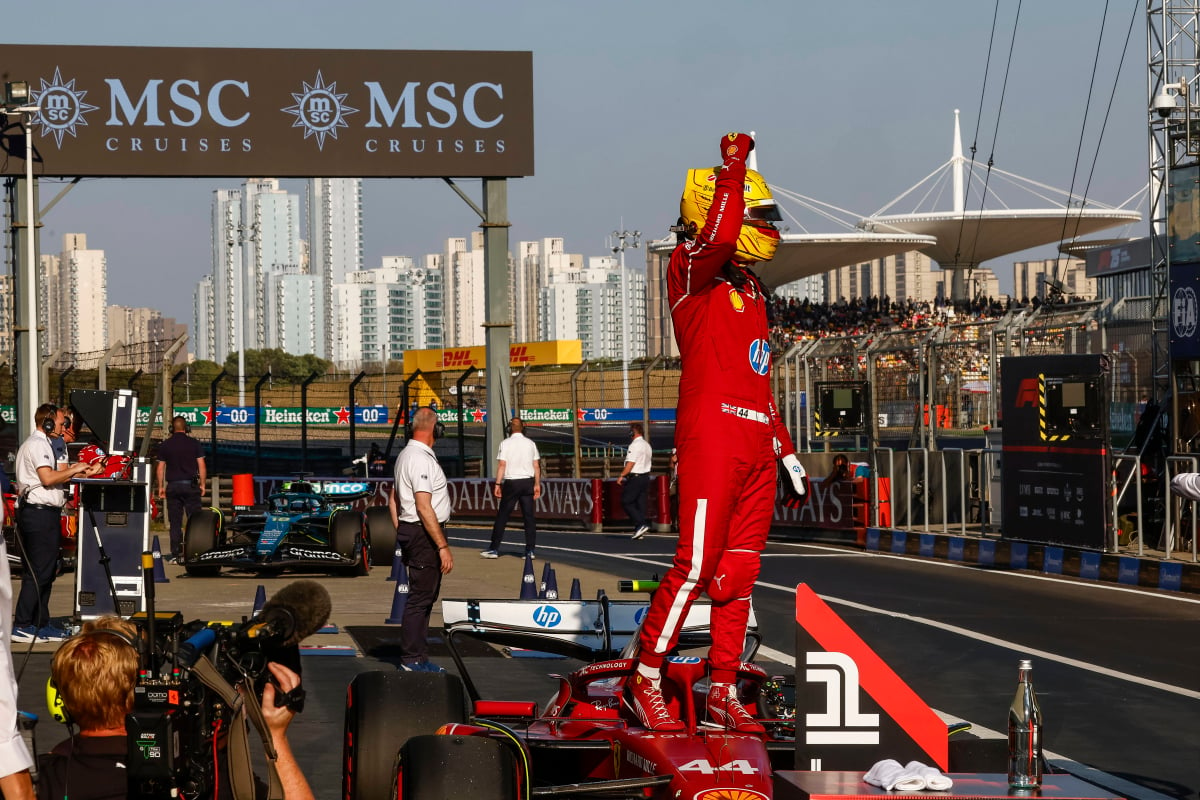When did Lewis Hamilton last win an… read more
Lewis Hamilton’s last Formula 1 victory remains a significant talking point in the sport, highlighting the changing dynamics of the grid and the formidable challenge posed by Red Bull Racing and Max Verstappen. His most recent win came on **December 5th, 2021, at the Saudi Arabian Grand Prix.** This victory, secured in dramatic fashion, capped off a season of intense rivalry with Verstappen, culminating in a controversial and nail-biting championship decider in Abu Dhabi. Since then, a remarkable winless streak has stretched on, sparking debate amongst fans and pundits alike about the reasons behind his prolonged absence from the top step of the podium.
The 2021 season was a pinnacle of Hamilton’s career, marked by his relentless pursuit of a record-breaking eighth world championship. He and Max Verstappen engaged in an unprecedented battle throughout the year, pushing the boundaries of on-track rivalry and generating unparalleled media attention. Their clashes, often characterized by aggressive wheel-to-wheel combat, captivated audiences worldwide and transformed the narrative of Formula 1. Hamilton, despite exhibiting exceptional skill and racecraft, ultimately fell short in the championship battle, a loss many attributed to controversial officiating in the final race. The lingering effects of this defeat have arguably influenced the subsequent seasons.
The 2022 season presented a stark contrast to the previous year’s intensity. Mercedes, Hamilton’s team, struggled immensely with a fundamentally flawed car design, the W13. This “porpoising” issue, characterized by the car bouncing violently on the straights, severely hampered their performance, leaving Hamilton often fighting for midfield positions rather than competing for race wins. The car’s aerodynamic instability significantly compromised its speed and handling, making it difficult for Hamilton to utilize his renowned driving skills to their full potential. The season was a period of adaptation and learning for the team, as they grappled with the new aerodynamic regulations introduced in 2022, regulations that significantly altered the design philosophy of F1 cars.
The 2023 season continued to present challenges for Hamilton and Mercedes. While the team made significant progress in addressing the porpoising problem and improving their car’s performance, they were still not able to match the pace of Red Bull Racing, particularly Verstappen. Red Bull’s dominance, coupled with Ferrari’s inconsistent performance and the emergence of other strong teams like Aston Martin, left Mercedes and Hamilton battling for podium positions rather than victory. Hamilton has consistently demonstrated remarkable consistency and skill, regularly qualifying strongly and often leading parts of races. However, the car’s lack of outright pace, particularly in race trim, has prevented him from translating strong qualifying performances into race wins.
Several factors contribute to Hamilton’s ongoing winless streak. Firstly, the dominance of Red Bull and Verstappen is undeniable. Verstappen’s consistently stellar performances, backed by a superior car and a well-oiled team, have presented an insurmountable hurdle for Hamilton and other competitors. This has created a situation where it’s incredibly difficult for any other team or driver to consistently challenge for victories. Secondly, the inherent competitiveness of the sport means that even marginal gains in car performance can significantly affect the outcome of a race. Mercedes has been diligently working to improve their car, but the process of development and catching up to the front-runners requires time and significant resources.
Furthermore, the evolution of F1 cars and the introduction of new regulations have created a more complex and challenging environment for drivers. Adapting to these changes requires not only exceptional driving skills but also a deep understanding of car setups and strategies. This learning curve has impacted all teams, but Red Bull has seemingly adapted more effectively, gaining a significant advantage. Finally, while Hamilton remains one of the greatest drivers of all time, age might be a subtle factor. Although he continues to show remarkable speed and skill, the relentless physical demands of F1 racing become increasingly challenging with age, even for the most talented athletes.
Despite the winless streak, Hamilton’s commitment to the sport remains unwavering. He continues to push himself and his team, demonstrating his unwavering dedication to achieving success. His experience and knowledge are invaluable assets to Mercedes, and he continues to play a crucial role in guiding the team’s development and strategy. The hope within the Mercedes camp remains that with continued development and refinement, they will eventually close the performance gap with Red Bull and return to contention for race victories. Until then, the question of when Lewis Hamilton will return to the top step of the podium remains one of the most compelling narratives in Formula 1. His last win, a distant memory in the ever-evolving landscape of motorsport, serves as a potent reminder of the relentless competition and the ever-present challenge of maintaining dominance in this highly demanding sport.




